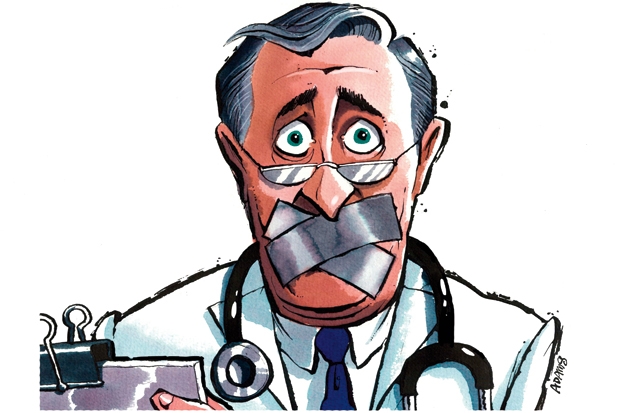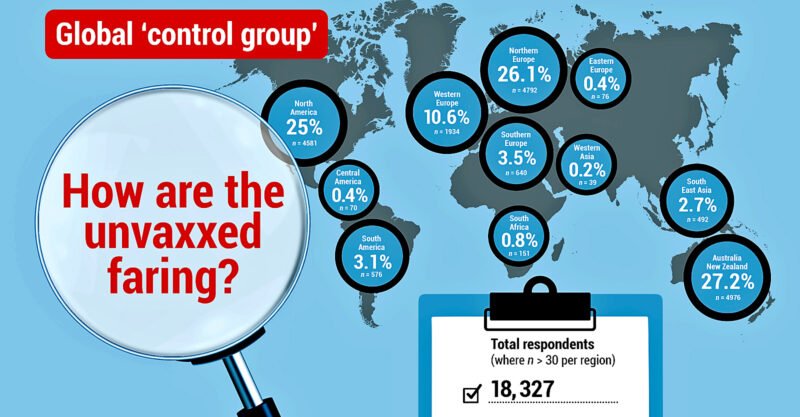
Healthcare professionals are being silenced and threatened with disciplinary action for speaking out about their work during the coronavirus outbreak, the Guardian can reveal.
Many NHS staff are increasingly concerned that their ability to share stories about their work is being restricted by a clampdown on speaking out publicly.
It follows reports of doctors and nurses being gagged by hospitals and other NHS bodies from speaking out about widespread shortages of personal protective equipment (PPE). Tactics have included threatening emails, the possibility of disciplinary action, and some people even being sent home from work.
While there could be some logic to hospitals wanting to stop scaremongering when communications departments are overloaded with work at a busy time, many staff feel they are being blocked from highlighting their work during the pandemic.
Workers who have spoken to the Guardian say they fear being disciplined. Several professionals said they worried about losing their jobs. Examples include an email signed by the chief executive of one NHS trust forbidding all staff from talking to the media, and incidents where staff suspect emails and social media accounts are being monitored. Requests by staff to communications departments to permit them to talk to the press have been turned down, leaving staff anxious and fearful for their jobs during the worst global public health crisis of this century.
One nurse who wanted to highlight the vital role of his profession received an email (later recalled) from his trust to all staff, which banned public communications. When he contacted the communications department, he was shocked to receive a response saying simply no media. The team did not say what action they might take to enforce the ban, he said, but the tone was threatening..
The nurse added: “As healthcare workers I think we feel generally quite secure – there’s always work for nurses. But in my correspondence with the communications department I felt quite powerless all of a sudden. It makes me so sad.” Ironically, he added, coronavirus has in fact led to the role of nurses being highlighted in a way they could never have otherwise dreamed of, including being featured on the front cover of glossy magazines.
Not all NHS trusts in England have imposed a blanket ban on staff speaking out and some are encouraging professionals who wish to talk about their work. A range of staff recently explained their behind-the-scene roles to the Guardian, but most of those speaking out tend to be doctors, often in secure positions where they are less likely to be challenged or threatened.
Kate Jarman, director of corporate affairs at Milton Keynes University hospital NHS foundation trust, believes staff should be supported to talk about what life is like in their roles. “There’s always a balance to be struck in how staff get messages across,” she said. “People should be mindful of patient confidentiality and the core messages of public information and safety but from what I’ve seen, they are doing that.”
The Guardian is aware of several cases where staff have been silenced. They include:
- A health professional who was left anxious for their job after their communications department found out they had spoken to a journalist about their work.
- Staff at one trust who faced disciplinary action for speaking out. A blanket email signed by one trust’s chief executive was sent, warning staff not to speak to media under any circumstances. Some staff believe social media accounts are being monitored.
- Healthcare workers from different trusts who volunteered to be interviewed about their job in times of coronavirus and were told they could not mention the trust or their work at the hospital.
- One hospital manager who said they had received guidance about press/media from the trust they worked for and would not be able to say anything for the foreseeable future.
- One mental health worker working on a secure psychiatric ward who said they were terrified of speaking out publicly because they have been reprimanded by senior management before for highlighting aspects of patient care.
Unions representing NHS staff have expressed their concerns. Colenzo Jarrett-Thorpe, national officer for health at the Unite union, which represents 100,000 health staff, said officials had been hearing that some NHS bosses may have been clamping down on staff wishing to expose failings in the system and improve the wellbeing of patients.
A spokesman from the Institute of Biomedical Science, a professional body for scientists, support staff and students, said members working for the NHS who wanted to talk about their vital role in the crisis were increasingly coming up against the same barriers. “Hospital trusts in England are silencing our requests for members to talk.”
The ramifications of such a clampdown at a time when NHS staff are risking their lives and being celebrated by the general public are chilling, but come as no surprise to some. Roger Kline, a research fellow at Middlesex University who has done a lot of work looking into whistleblowing, said: “Old habits die hard, and I’ve certainly been contacted by NHS and social care staff anxious about going public and nervous about challenging local managers.”
One mental health professional told the Guardian that the unspoken rule is that staff should keep their heads down, follow orders and say nothing. “When it comes to the day-to-day clinical issues and challenges we face, there is a definite power dynamic at play, and [we] are generally petrified to speak out,” they said.
Preventing people from speaking out about their work is not only happening in the UK. In the US, hospitals are threatening to fire healthcare workers who publicise their working conditions during the coronavirus pandemic – and have in some cases followed through.
Source: The Guardian
Sometimes you just have to ask yourself: WHAT ARE THE CHANCES OF THAT ? – #watcot












